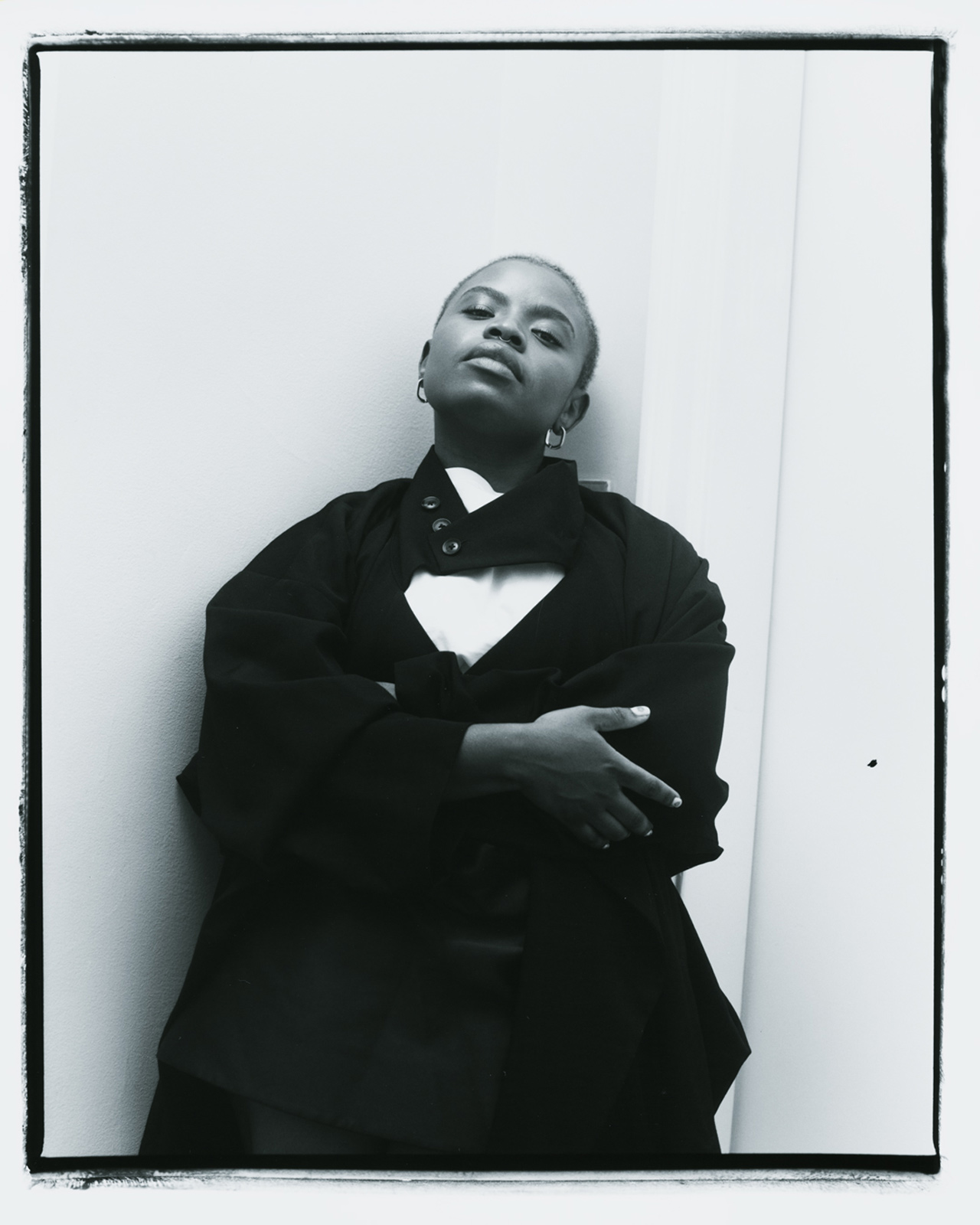She was shouldered with the burden of saving indie rock—but Laetitia Tamko's 'Sorry I Haven't Called' carves its own ambitious path
The music scene is often looking for a rising star: a new face for the industry to hook its ambitions and appetites onto. In 2019, indie rock inaugurated Laetitia Tamko—a twentysomething Cameroon-born artist whose graceful vocals gave journalists heart palpitations—into its rhetorical galaxy. A 2017 New York Times story declared, “Women are making the best rock music today.” Vagabon—Tamko’s artist moniker—was among the picks to illustrate the polemic.
Black female artists are, so often, asked not just to fulfill the requirements of a musician—possessing talent, beauty, stamina, high productivity, and tact—but also of an activist. In the aforementioned Times piece, Tamko pushed back on the imposed political narrative of her artistry: “Because of who I represent and at what time I decided to share this music, it just became this narrative put on me that I was gonna change the world of indie rock. I appreciate that, but I’m not really here to change any world. It’s really limiting to stamp such an intense title on someone just because there really hasn’t been much room allotted for people like me to thrive.” In other words, Tamko’s radical politics are in her resistance to being labeled as a genre disruptor: This resistance isn’t so much snubbing responsibility as it is claiming joy when everyone expects you to toil.
Sorry I Haven’t Called, out today, is a celebration of radical pleasure. The record defies the sound that Vagabon as a project came of age amongst: It is decidedly not an indie rock record or a new age, synth-tinged collection, as were her first and second albums, respectively. In the four years since the release of her sophomore self-titled album, Tamko has found a more kittenish spirit. Her latest is a hedonistic haven for pop anthems, ones she’s excited to perform on-stage after COVID abridged her last tour.
The new album was also written after the death of a close friend and collaborator, Eric Littman. When Tamko returned to songwriting in the wake of his passing, taking up residence in a small town in North Germany, she was surprised to discover a volume of danceable anthems surfacing, when she was expecting ballads of grief. “I thought that I was going to make a really sad record,” she says. “But when I sat down to write, I found that I headed more towards catharsis, more towards euphoria, more towards joy.”
Part of that joyful pursuit has come from crafting the aesthetics of her latest album. “I’ve been really intentional about the visual world that I’m building,” Tamko says. Its imagery is a gorgeous revelation, from the color-soaked album cover to the cool, gravity-defying music video for “Lexicon.” “I literally was shooting it with food poisoning, which made me feel kind of like Beyoncé,” she divulges. Where her first album cover featured a pastel collage, and her second, a pensive and oversatured portrait, Sorry I Haven’t Called departs from her DIY roots towards a high-concept, visually-driven pop persona.
“I’ve been really enjoying creating the fantasy—whether it’s my on-stage presence or playing around with my wardrobe—that fans can submit to, almost feel suspended in.” She adds, “It’s like I’m Hannah Montana or something.” Tamko’s best of both worlds: an aesthetically ambitious album whose visuals don’t eclipse her sincere artistry.
At the center of the album’s 12 glossy, uptempo songs is Tamko’s reverence for colloquial speech. From the opening of “Can I Talk My Shit?” on which the artist confesses her boldness, to the melancholy miscommunication of the last track “Anti-Fuck,” the intimacy of conversation returns time and time again as a central theme. As Tamko explained to me, “I was interested in the romance of everyday language.” Text messages she has sent or received appear as lyrics—even as the album’s title.
“I thought that I was going to make a really sad record. But when I sat down to write, I found that I headed more towards catharsis, more towards euphoria, more towards joy.”
Tamko is able to mine depth from even the briefest phrases—a Pitchfork reviewer of Tamko’s first album shared that he was so struck by her lyrics, he had to physically pause. The singer-songwriter writes with the economy possessed by great authors, a kind of breezy yet profound conversational tone that recalls the lunch poems of Frank O’Hara—or, as Tamko suggested, the simplicity of Drake’s lyrics. “Despite how you feel about Drake, there’s a Drake line for everything. Like how there’s a Seinfeld episode for everything. You know?”
In a 2019 New Yorker profile of Tamko, author Hua Hsu writes of her two albums: “There is a playful hesitancy to her singing, and to the way that her snarling electric guitar takes up the lines that she leaves unresolved.” On Sorry I Haven’t Called, any residual shyness has evaporated. Tamko’s vocals are steady, resilient statements, her breath arching around her poetic words. On “Nothing To Lose,” her voice is decisive: “I want so much more. I want so much more.”





















